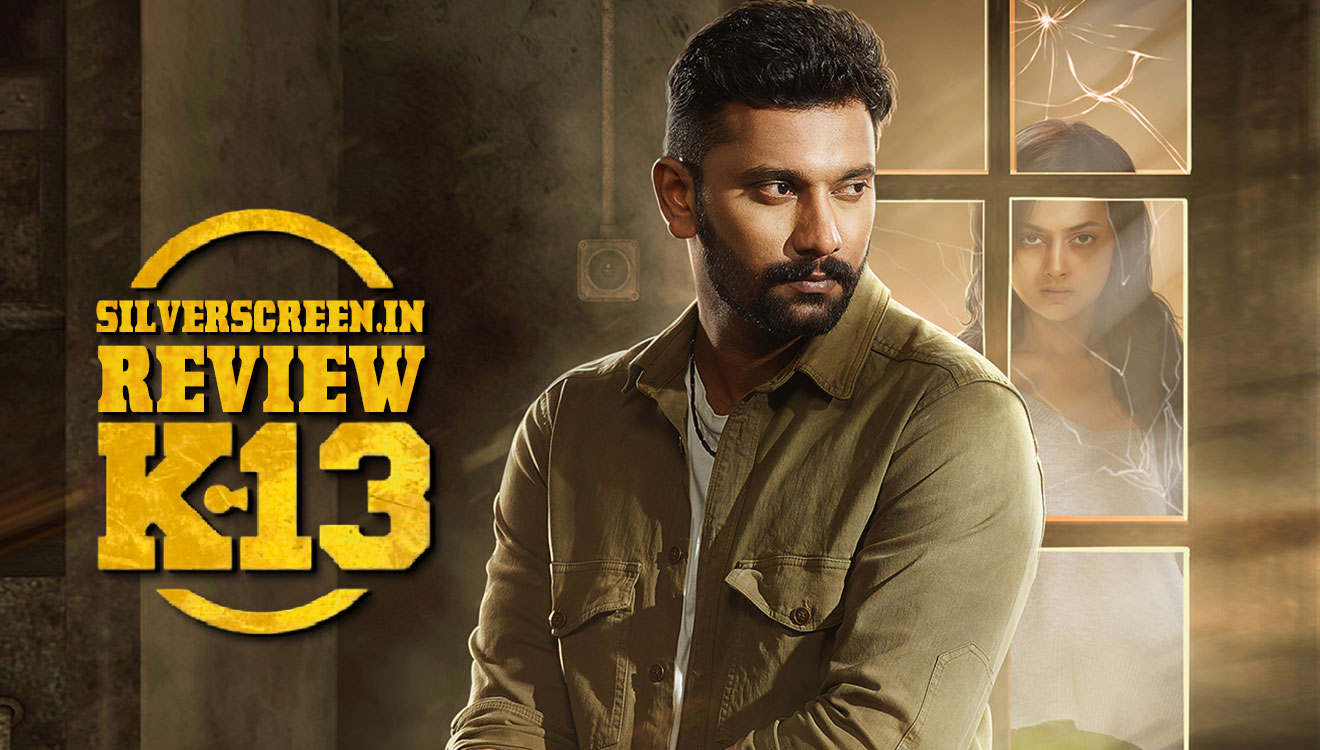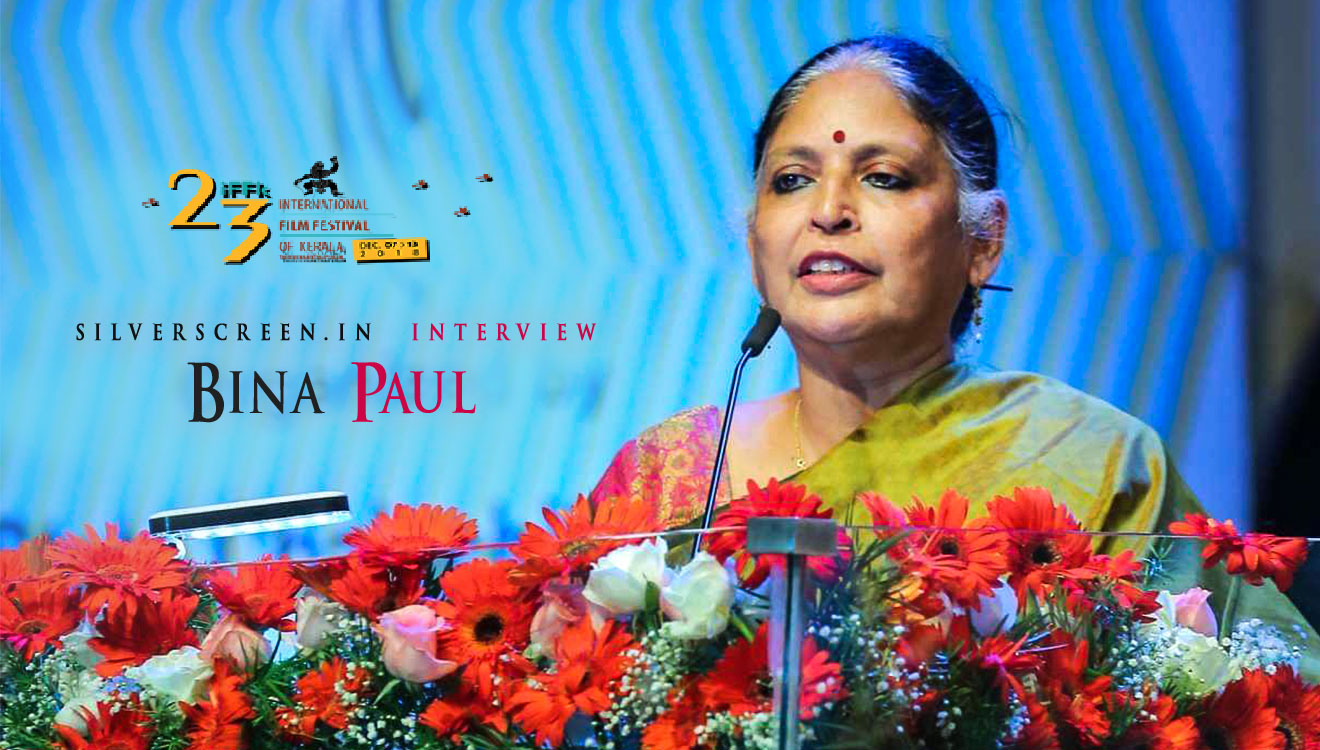This piece has been a little more than a year in the making. The first trigger was seeing the trailer of 96 in 2018, and sensing that something magical was going to unfold on screen soon. I spoke to directors, distributors, and others associated with the industry to see if they felt the same. Most did. But, it all began with Prem Kumar, who gave Trisha a fresh lease of life as Janu. The character, look, that yellow kurta, Chinmayi’s dubbing, Trisha’s chemistry with Vijay Sethupathi, the music, and the angst of love lost put Trisha firmly back in the place she belonged — as Tamil cinema’s sweetheart. You’ve had women being accorded superstar status, but what Trisha has achieved is rare: to stay relevant after 17 years in the industry is rare.
***
Sometime in 2005, when Prem Kumar was in his early 20s, he saw Trisha in the ‘Paakadha Enna Paakadha’ song from Hari’s Aaru. In a star vehicle high on action, Prem’s attention was drawn to something else – Trisha’s fleeting expressions. The actress was just a couple of years in the industry, but already had quite a few hit numbers and big-budget films to her credit, and was known to emote very well in songs. Years later, when he was turning director with 96, Prem remembered that. He was on the lookout for an actress to play Janu, the kind of girl who would not frown. “You really need to focus to catch those looks unique to her, and look beyond her amazing screen presence,” he says.
The audience saw more of that famed screen presence in Kireedam, Vinnaithaandi Varuvaaya, and other mainstream films, but then, it seemed there was a lull in the momentum. Trisha had ruled commercial cinema for long and stepped back to experiment with genres. She did horror, horror-comedy, turned antagonist… the works, but was yet to reclaim the top spot. While Trisha continued to be part of potential blockbusters, there was really no film that headlined her or banked on her experience as a tried and tested mainstream heroine. Barring her negative turn in Kodi or the much-loved Hemanika in Ennai Arindhaal, Trisha was making choices that were strictly average.
Still surprises
At a time when her contemporary Nayanthara had moved on to working with the next generation of young superstars, it looked like Trisha had been left behind. This, despite choosing heroine-driven projects such as Nayaki and Mohini that eventually did not do much for her career. It needed a 96 to get her to wow her audience the way she once used to.
“Is it not our fault that no one really tried to get her out of her comfort zone? After all, she is capable of a subtle, mature performance even within the commercial format,” explains Prem.
That argument makes sense. Because, unlike her contemporaries such as Asin and Nayanthara, and later Samantha and Keerthy Suresh, Trisha has been a part of too many blockbusters for directors to look beyond her commercial star persona. For instance, Prem says he was intrigued by the look on her face in the Ennai Arindhaal hit number ‘Mazhai Vara Pogudhe’ as Hemanika walks down the stairs towards Ajith’s Satyadev.
Directors who have worked with Trisha over the years agree on one thing – her ability to be a team player. “She can be painfully disciplined. After 17 years in the industry, she is still always on time; the rest of the team has to keep pace,” says Prem.
Defying the trend
96, everyone believed, would be the film that showcases Trisha the performer, and it did not disappoint. Industry trackers say this is long overdue because she has been working in films across languages without a break. And, while we celebrate other actresses, credit must be given to Trisha for staying relevant at a time when heroines have a very limited time gap to make a name for themselves. Trisha herself does not really like being termed a “survivor” (In an earlier interview, she said she tends to look at it as a back-handed compliment). And, no, she has not ‘preserved’ herself well too — she’s not a pickle!
Director Dharani, who worked with her in the superhit Ghilli with Vijay, one of her earliest successes, still fondly recalls an innocent Trisha who was a willing student. “It was a film that revolved around her, and she was still a newcomer. Despite that, her reactions were just what I wanted. Many questioned my casting her as this young girl, considering she was fresh from the success of Saamy, where she played a married woman. But, I was convinced that the freshness of her face would draw people to her character, and that’s what happened.”
While she was working on the film, the infamous CD controversy broke. Says Dharani: “That one incident showed me what strength of mind she possessed. She was in the initial stages of her career and there was a lot at stake, but she dealt with it in a very mature manner. I felt others could learn to be brave from her. She always saw the big picture; she was meant to last the course.”
An inspiring career
One of those who has worked with Trisha in the initial stages and later when she became a star is actor Siddharth; they were paired in Mani Ratnam’s Aaytha Ezhuthu, Prabhudheva’s Telugu superhit Nuvvostanante Nenoddantana, and Sundar C’s Aranmanai 2. “She’s always been this very young person to interact with on the sets. We worked back-to-back with Mani Sir and Prabhudheva; she was fresh from the success of Varsham with Prabhas and I was looking for a hit. She submits to a director, totally. To think that she shot simultaneously for these two films that cast her very differently! I have great respect that she’s still working in the kind of projects she is. Female actors have a lot stacked against them. To beat the odds and be active this long is deeply inspirational.”

Trisha Speaks Against Child Violence At A UNICEF India Event
Another co-star says what works in Trisha’s favour is that she’s bonafide heroine material. “She’s stunning on screen, dances like a dream and people still relate to her; they think the girl on screen is real. But, you have to concede that she is part of a thankless business where performers are dependent on someone to give them work.”
Frank talk
That Trisha has achieved this despite her propensity for frank talk is intriguing. In an industry known for platitudes and political correctness, she’s that rare actor who wears her heart on her sleeve, unapologetic about who she is and what her choices are. In an interview to reviewer and trade analyst Sreedhar Pillai, she spoke openly about an ‘issue’ with Nayanthara, and how they did not speak for some time, till the ice was broken. Nayanthara referred to this in an interview with Divyadarshini, and recalled how Trisha was the one who was magnanimous enough to come up to her, speak and sort out a non-issue. This ability of Trisha to not hold on to grudges is something others speak of too.
In January 2015, she announced her engagement to Varun Manian, and called it off some months later. Rumour mills churned incessantly, but she chose to maintain a dignified silence. The actress also told Pillai that some years ago, she did not take very well to the sudden rush of newcomers, and wondered if others could be ‘number one’ when she was around. Then, she realised that space could be shared and that she had the option of moving to a different level and trying different things. Kodi’s Rudhra and 96’s Jaanu, whose face lights up at the mere mention of a fond classmate, are part of that career shift.
The many shades of love
To her credit, Trisha has looked the same over the years. She can still play a young girl fresh in love, but her face also has the maturity that allowed her to play the flawed Rudhra. She’s done very well in roles that allow her to underplay. Like Vinnaithaandi Varuvaaya’s Jessie. Even Trisha has said she thought it was a simple love story, but the screenplay by Gautham Vasudev Menon that dipped into the insecurities and confusions of youth touched a chord across cities. 96 saw her in a similar space – less make-up, and lots of love to go around. Traditionally, that’s a genre the actress has excelled in.
Those in the industry who have seen her career graph in Tamil and Telugu, where she has clocked numerous hits, say the fact that her mother Uma is also her manager is a double-edged sword. “Her presence ensures a certain safety net for Trisha, but it also means she does not have access to a professional opinion when someone comes to her with a script. That explains the poor choices of late. An actor might be brilliant, and things will fall in place when she’s at her peak, but it is when the career plateaus that you need professional help to get you back where you belong. Trisha lacks that. She had no business doing a film like Mohini,” says an associate. But Trisha depends on her mother for everything behind-the-scene. “We are a good team,” she has insisted, across platforms.
Another reason being attributed to her recent tepid run is that she does not choose scripts after thought. “Most seem to be based on gut instinct; it might not work always,” says a publicist.
Speaking up
Recommended
Among the current crop of actors, Trisha is among the few who speak Tamizh but really does not dub for herself in every film. For long, Savitha Reddy has been her voice, and even won the Tamil Nadu State Film Award for Best Female Dubbing Artist for Something Something …Unakkum Enakkum. Chinmayi has dubbed for Trisha for her seminal role of Jessie and for 96. The audience has heard Trisha’s real voice in a handful of movies – Aaydha Ezhuthu, Manmadhan Ambu, Samar, Mankatha and Thoongavanam. The actress has said it was Kamal Haasan, her co-star in Manmadhan Ambu and Thoongavanam who encouraged her to speak her own lines.
The general perception is that Trisha excels in roles that are soft, yet with a spine of steel. Should Trisha fight that perception and attempt things that are way out of her comfort zone? Not many think so. “It’s rare for someone to have that kind of softness after all these years in the industry. She should not fight it, but use it to her advantage,” says a co-star. Hey Jude in Malayalam is another example of Trisha trying to work differently but from within the system. Her turn as Crystal, who has bipolar disorder, was delicate and vulnerable with rough edges.
Free spirit
Should she take up yet another Hemanika? A dancer who pursues a path of her making is a mom to a child and someone who loves a man deeply enough to initiate their first hug. A girl who is rooted but also a free bird? That would be nice because what ultimately draws people and creators to Trisha seems to be her free spirit. “She’s a happy person drawn to good stories. And, that kind of happiness is contagious,” says Prem, who also best explains why Trisha has that effect on people. “She’s an open book. There’s no malice in her, and the camera catches that honesty. She does not act, rather she behaves between action and cut. She trusts directors, and so you are duty-bound to do better. After all, it’s not possible to sustain for so long merely on one’s looks!”
The actress has a couple of projects in hand that should hopefully place her in an orbit where she chooses to be. Till those kinds of roles are being written, there will always be a space for an actress who has openly admitted to learning on the job, and who confesses she knows nothing else but cinema.
It helps that Trisha has an active social life beyond cinema. She’s known for her love for pets and her work with abandoned creatures and takes off on holidays with friends outside of the industry. She stays clear of controversies and restricts her work in cinema to shoots and promotions. The truth is that the Tamil audience has never known how to read her. She’s unlike any actress they’ve seen. She lives life on her own terms and they seem to have finally understood what she’s always known. That birds are happiest in flight.



